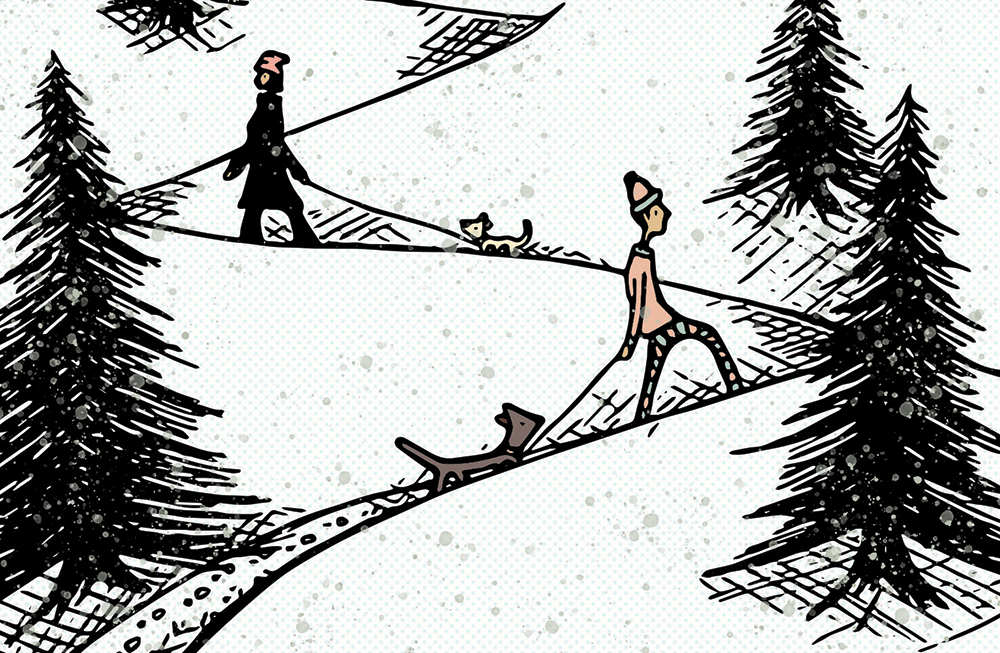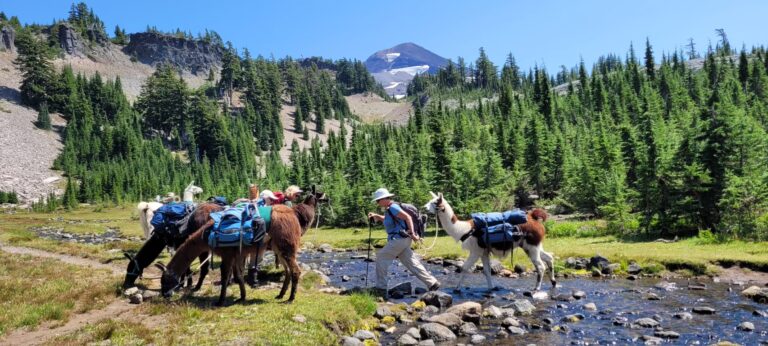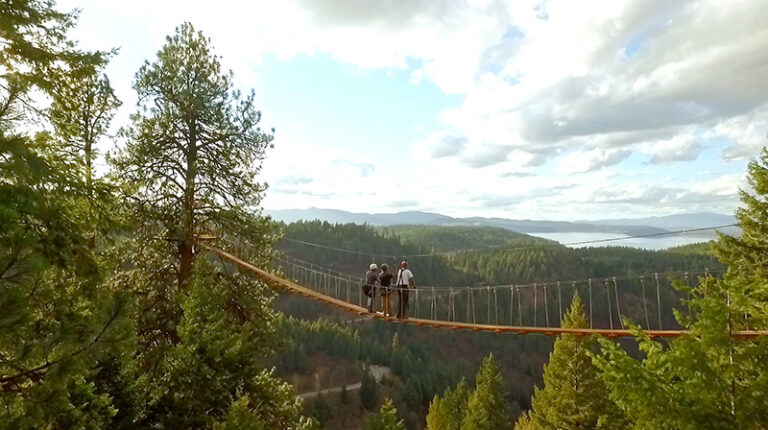By Ellen Welcker
On a classically perfect Inland Northwest fall day, a day where all the trees seemed lit from within and the light loved everything it touched, my kids and I logged off our various devices, rubbed our bloodshot eyes, and respectively pedaled/ran the few miles to Spokane’s Lincoln Park. We love how this park—with its scabs of basalt erupting from grassy wildflower meadows; its turtles, ducks, red-winged blackbirds, and resident blue heron; its car-less paved loop on which a smattering of runners, walkers and emerging bike riders can usually be found—feels like such a refuge for animals of all species, including our own.
And it was a refuge. After a long day of online learning for my 2nd and 5th graders, after jumping between technology assists and my own online work, after many days of smoke-filled skies and an AQI reading stubbornly hovering in the “hazardous” zone, among the many difficult days of a difficult year in a difficult season, my spirit felt puny and weak, as it has often felt and will feel again.
On the other side of the park, where views of the city stretch out into greener valleys and hills, I saw this young ponderosa pine growing sideways out of a sheer rock cliff. It was a young tree, but not that young, and that we had in common. Other things, too: We were holding on, the tree and me, and it seemed tenuous—improbable, even, but we knew how strong our foothold was. We knew our root, wedged, was also held in turn by something strong.
So much will have happened between the time I am writing this and the time this essay runs. And yet, with any luck, the world will be here. The earth, strained as it is, will still try to self-regulate into the winter months. Nights will be long; the sun will feel far away when it shows itself. I’ll hope for snow, just as I’ve done every year since I was a kid. I’ll keep trying to write into the unknown, trying to think about how we keep holding on, keep turning our faces toward the sun—even as so much of what feels unknowable, or doomed, or terrifying, demands and consumes our energies.

Part of what connects us to one another is the undeniable fact that everything we love, we will lose. Life, the seasons, this beautiful, perfect planet—even now they are slipping, ever so slightly from our hold. If you are reading this, breathe in. Can you feel how the air nourishes and invigorates you? Can you feel it caress your skin? Is the sun still in the sky? Is your heart in your body? Go on. Go on. No matter how toxic the air, the trees are working to make it clean. We must reserve some love for them. We must love the trees as much as we fear, as much as we rage, as much as we fight or feel numb. Do not grow numb to the trees.
I see that I am writing this to my future self. I am trying to send myself a message from the past. Sometimes writing is like that. Hello, you. It’s me. I’m stuck in this moment—it is sometimes happy and often overwhelming—and I go for walks looking for portals. Have I found one in “Last Page” today? Time will tell. In time, I will pass from where I am now to where I am now. Epochs will come and go. Balances will be disturbed, reset, evolve. Sometimes, when I feel so panicked about all that we have wrought, I close my eyes and telescope out—see, in my mind’s eye, the earth as a small, lovely marble swirling among stars. What happens here is everything. What happens here is a butterfly’s wingbeat in the whole wide universe. Imperceptible but not inconsequential. As we know.
Watching that spindly sideways young pine tree sway slightly in the afternoon breeze, its stars of needles extended like jazz hands, like possibility, like ‘help’ and ‘yes’ and everything an open hand comes to symbolize, it’s tender shoot reaching for sun and its commitment to hold on, to grow, to grow, to grow—I felt a kinship. I felt like, I think I can try a little harder. Let’s keep trying. Let’s keep trying.
Ellen Welcker is the author of the poetry collections “Ram Hands” and “The Botanical Garden,” and coordinates The Bagley Wright Lecture Series on Poetry. She is an all-seasons fan of the outdoors, whose interests include running, Nordic skiing, and backpacking.













